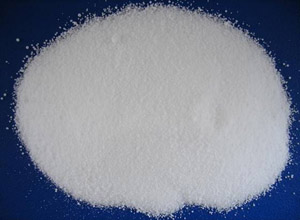Potassium Chloride (KCL)
Potassium chloride is a High Purity, dry Crystalline inorganic/metal halide salt composed of potassium and chlorine, KCL. It occurs naturally as the mineral slyvite. Potassium chloride is often referred to as muriate of potash, particularly when used as a fertilizer.
Application
-
Primarily used as a shale inhibitor as the potassium ion exchanges with calcium and sodium ions in the interlayer space in illites and smectites, converting them to more stable mica-type structures that do not hydrate and swell
- Used to prepare brines for drill-in, completion, and workover fluids
Advantages
- Widely used in the industry
- Largely benign salt; solutions are neutral pH
- Does not significantly impair performance of polymers such as viscosifiers and filtration controllers
Usage
Potassium chloride is used at concentrations of 10 to 37 lb/bbl (28.5 to 105.6 kg/m3) for shale-inhibition purposes. Actual level is based on shale testing and knowledge of the formation. Therefore, some operators use as much as 80.5 lb/bbl (230 kg/m3) as determined by wellbore stability modeling.
For application in dense brines, refer to brine tables.
Consult the MSDS, safety posters, and/or product label before use, and use personal protective equipment as advised.
Packaging
| 25 kg HDPE/PAPER BAG |
| 50 kg HDPE BAG |
| 1000 Kg JUMBO/BIG BAG |
| 50 lb (22.7Kg)3 |
| 100 Ib (45.4 Kg) |

